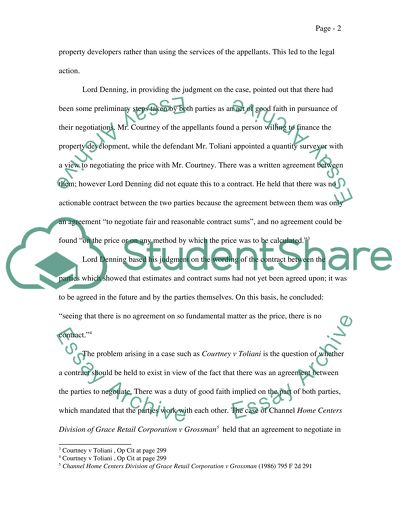Cite this document
(The General Principles of Contract Law Case Study, n.d.)
The General Principles of Contract Law Case Study. Retrieved from https://studentshare.org/law/1544255-a-contract-to-enter-into-a-contract-is-not-enforceable-when-contract-is-subject-to-negotiation-it-is-too-uncertain-to-have-a-binding-force
The General Principles of Contract Law Case Study. Retrieved from https://studentshare.org/law/1544255-a-contract-to-enter-into-a-contract-is-not-enforceable-when-contract-is-subject-to-negotiation-it-is-too-uncertain-to-have-a-binding-force
(The General Principles of Contract Law Case Study)
The General Principles of Contract Law Case Study. https://studentshare.org/law/1544255-a-contract-to-enter-into-a-contract-is-not-enforceable-when-contract-is-subject-to-negotiation-it-is-too-uncertain-to-have-a-binding-force.
The General Principles of Contract Law Case Study. https://studentshare.org/law/1544255-a-contract-to-enter-into-a-contract-is-not-enforceable-when-contract-is-subject-to-negotiation-it-is-too-uncertain-to-have-a-binding-force.
“The General Principles of Contract Law Case Study”. https://studentshare.org/law/1544255-a-contract-to-enter-into-a-contract-is-not-enforceable-when-contract-is-subject-to-negotiation-it-is-too-uncertain-to-have-a-binding-force.


